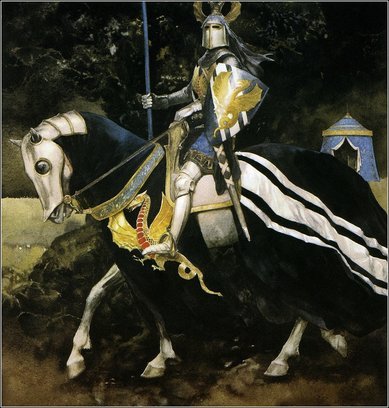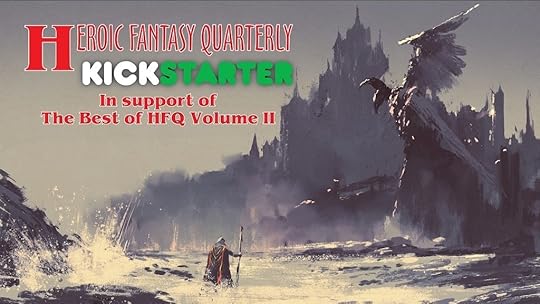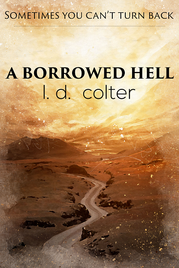L.D. Colter's Blog, page 10
May 9, 2017
Writing Tips 101.12 - The Wrap-Up
 Photo from Pexels We’ve done it! Twelve weeks of writing tips to get you started on your way to creating engaging short stories and novels that showcase your individual creativity through solid technique and a foundation in style. This week I’ll wrap up the series with a few final suggestions for your completed masterpiece.
Photo from Pexels We’ve done it! Twelve weeks of writing tips to get you started on your way to creating engaging short stories and novels that showcase your individual creativity through solid technique and a foundation in style. This week I’ll wrap up the series with a few final suggestions for your completed masterpiece.Wrap-up tip #1: Beta Readers
I mentioned beta readers last week with a promise to expand on the topic this week, so here you go. I know hundreds of authors; I know very few who don’t use beta readers. Even writers who have attained celebrity status or who work with senior editors at their publishing company will often list friends and readers in their acknowledgements to thank them for help with the early drafts of their manuscript. Personally, I think beta readers are essential. Writing can be a forest/trees situation for most of us - too close to the project to see the whole as objectively as someone reading it fresh. That they’ll catch typos you can’t see is almost a given - the human brain is hard-wired to fill in information like skipped words. If you know what you meant to say, that’s probably what you’ll see (at least some of the time) where a beta reader is more likely to catch the errors. But a good beta reader will do much more than catch typos and homonyms - they can point out awkward phrasing, points of confusion that seem obvious to you, and even make developmental editing suggestions - such as scenes that don’t work, points of low tension and slow pacing, characters that could be combined, and more.
The other huge advantage to beta readers is what you learn from returning the favor. If someone reads and critiques for you, it’s polite to offer to do the same in return - simultaneously, if they have a current project, or in the future if they need a hand later. Beta reading for individuals and participating in a live critique groups were hugely instrumental in my learning curve as a writer - it’s often far easier to see what doesn’t work in someone else’s writing than what’s not working in your own, and it can help you learn over time to spot or avoid the pitfalls you repeatedly see in various incarnations through other people’s work.
I could write a very long post just on beta readers, but here’s a short list of advice to get started:
*Don’t use close friends/family as beta readers - use other writers.
*Look for readers who are constructive and helpful, and be that kind of reader for others.
*When critiquing others, sandwiching your ‘needs improvement’ comments between two positive comments is a good method.
*When receiving comments, don’t defend or justify. Listen, say thank you, and use only what resonates with you after serious consideration of the point they were making.
*Don’t stress about people stealing your work. Use common sense, but know that the risk when trading material with real writers is very small.
*Don’t post your work online for comments if you hope to sell it. Most editors consider this already published and won’t touch it. This does NOT apply to private critique groups, like the ones listed below.
*If you don’t know local writers and don’t have forum or workshop friends to ask, consider online groups. For speculative fiction writers here are a couple of places to consider starting out:
Online Writing Workshop for Science Fiction, Fantasy and Horror (membership fee)
Critters Workshop (free, last I knew)
Wrap-up tip #2: Productivity
Again, I could do an entire post just on this topic, but to be brief:
*Keep writing - don’t let rejection or other nay-sayers discourage you.
*Use whatever motivates you to keep going - a time of day you always write, a word-count goal, NaNoWriMo or other contests, word-war competitions with friends. Just make sure if you want to be a writer, that your writing time is a priority. Butt-in-chair.
*Consider tools like dictation - I use Dragon Naturally Speaking at my desk whenever writing new words (vs revision work, which I do with the keyboard). I know an author who dictates into a hands-free recorder while driving and another who dictates (into an MP3, I believe) while hiking daily. You might be surprised how much dictation can help your speed and productivity.
Wrap-up tip #3: Submit your work!
This might seem like a no-brainer, but for many writers it’s far from easy. Self-doubt, fear of rejection, and all sorts of other brain-weasels can stop writers at all levels. I heard of a talented local writer who died with 25 unsubmitted novels, books that were so good they’re now being published posthumously. Don’t let it happen to you. Send it in! If something is rejected at your dream market, send it somewhere else and start writing something new. Developing a tough skin for those inevitable rejections is an integral part of being a writer, and every project you complete will improve your skills. To everyone who followed this series, thank you, and I hope you found things of value in it. I sincerely wish you all the best in your writing endeavors and hope to see your work published and climbing the charts someday soon! The writing community is an amazing group, one where we should all be cheering each other on. Knowing and reading writers better than ourselves will only make us better, new writers coming up the ranks attracts more readers, and readers discovering a new favorite author or genre or style helps writers everywhere to attract and build new audiences. I hope that writing this series has helped someone else, in the same way all the writers who gave me advice so freely along the way have helped me.
If you have comments or questions, feel free to contact me in the comments or through the contact form.
Published on May 09, 2017 09:33
May 5, 2017
Giveaway for A Borrowed Hell Ends Soon
A reminder that the Goodreads giveaway of A Borrowed Hell ends five days from now. Two signed, trade paperback copies are up for grabs.
Lost in a barren alternative world, July Davish has two options: Confront his hellish past or be trapped there forever.
"Colter has created a world equal parts magical realism, inner journey, and psychological horror. Carlos Castaneda meets Thomas Covenant in a well crafted tale of fear, doubt, and redemption as July Davish pursues his inner demons in order to face them down and break the cycle of anger and frustration that has held his life hostage. Recommended." - Nathan Lowell
"Literary Vergangenheitsbewältigun.
This is a hero's journey on the most intimate and personal level. A story of increasing conflict and tension that evokes first sympathy and then empathy: Are we heroes enough to face the pains we've locked away?
I read the latter 2/3 at one go. I couldn't put it down." - R. Finegold (less)
.goodreadsGiveawayWidget { color: #555; font-family: georgia, serif; font-weight: normal; text-align: left; font-size: 14px; font-style: normal; background: white; } .goodreadsGiveawayWidget p { margin: 0 0 .5em !important; padding: 0; } .goodreadsGiveawayWidgetEnterLink { display: inline-block; color: #181818; background-color: #F6F6EE; border: 1px solid #9D8A78; border-radius: 3px; font-family: "Helvetica Neue", Helvetica, Arial, sans-serif; font-weight: bold; text-decoration: none; outline: none; font-size: 13px; padding: 8px 12px; } .goodreadsGiveawayWidgetEnterLink:hover { color: #181818; background-color: #F7F2ED; border: 1px solid #AFAFAF; text-decoration: none; }Goodreads Book Giveaway A Borrowed Hellby L.D. Colter
A Borrowed Hellby L.D. Colter
Lost in a barren alternative world, July Davish has two options: Confront his hellish past or be trapped there forever.
"Colter has created a world equal parts magical realism, inner journey, and psychological horror. Carlos Castaneda meets Thomas Covenant in a well crafted tale of fear, doubt, and redemption as July Davish pursues his inner demons in order to face them down and break the cycle of anger and frustration that has held his life hostage. Recommended." - Nathan Lowell
"Literary Vergangenheitsbewältigun.
This is a hero's journey on the most intimate and personal level. A story of increasing conflict and tension that evokes first sympathy and then empathy: Are we heroes enough to face the pains we've locked away?
I read the latter 2/3 at one go. I couldn't put it down." - R. Finegold (less)
.goodreadsGiveawayWidget { color: #555; font-family: georgia, serif; font-weight: normal; text-align: left; font-size: 14px; font-style: normal; background: white; } .goodreadsGiveawayWidget p { margin: 0 0 .5em !important; padding: 0; } .goodreadsGiveawayWidgetEnterLink { display: inline-block; color: #181818; background-color: #F6F6EE; border: 1px solid #9D8A78; border-radius: 3px; font-family: "Helvetica Neue", Helvetica, Arial, sans-serif; font-weight: bold; text-decoration: none; outline: none; font-size: 13px; padding: 8px 12px; } .goodreadsGiveawayWidgetEnterLink:hover { color: #181818; background-color: #F7F2ED; border: 1px solid #AFAFAF; text-decoration: none; }Goodreads Book Giveaway
 A Borrowed Hellby L.D. Colter
A Borrowed Hellby L.D. ColterGiveaway ends May 10, 2017.
See the giveaway details at Goodreads.
Enter Giveaway
Published on May 05, 2017 07:31
May 3, 2017
The Deaths of All We Are
Very happy to announce that my story, The Deaths of All We Are, is live at Heroic Fantasy Quarterly. Going back to my love of epic fantasy, this is one of my favorite short stories - a retelling of the Arthurian romance "The Lady of the Fountain" from the Mabinogion, a collection of Welch stories from the 12-13th century.  With permission of the artist, the artwork above is from from the Gwyn Jones, Thomas Jones translation, The Mabinogion, beautifully illustrated by Alan Lee, and containing a translation of the original story, "The Lady of the Fountain." A preview of The Deaths of All We Are:
With permission of the artist, the artwork above is from from the Gwyn Jones, Thomas Jones translation, The Mabinogion, beautifully illustrated by Alan Lee, and containing a translation of the original story, "The Lady of the Fountain." A preview of The Deaths of All We Are:
Waking before dawn, I shift under the blankets that lie heavy on me; or is it soil covering me, nesting me deep and safe?
The stone floor beneath the rushes leeches cold into my bare feet when I rise. Pouring from a pitcher, I dip my cupped hands into the icy water, but pause partway to my face. The Great Mother Earth exhales deeply, a sigh of change. Her shifting pulls me entirely into Her world, the world of woods and streams. It must be a large change coming; Her beats of time tick too slowly to consider the small threats, a season of flood or fire. I shift with Her, like a sailor on a rough sea, one foot on the flagstones, one on the floor of Her autumn forest, and then I am wholly of the castle world again.
I finish readying myself so I may be there before my lady rises, to be on hand to dress her, to tell cook what she desires to break her fast.
Stepping into the hall, her husband emerges also from his bedchamber, which lies next to my lady’s own. He is fearsome in his black armor. His dark eyes — all that show beneath the raised visor — sweep past me. He is unaware of what I have felt. Did he know, he wouldn’t care; he is attuned only to threats to his wife’s lands.
The Earth shifts minutely as he pushes past, his armor brushing my arm, his musky scent filling my nostrils — a natural scent, more pleasing than the cloying perfumes of my lady.
My lungs full of him, I see a wolf dead in the woods, little more than a pelt. Sharp teeth have been bared by the drying skin of the lips. The bones of the chest show through great rents in the desiccating skin. Death. It comes for this Black Knight soon. I wonder if my lady will mourn him.
*********
You can read the rest of the story for free at:
http://www.heroicfantasyquarterly.com/?p=2221 HFQ is a long-standing online magazine about to enter their 8th year in publishing. If you enjoy the story or the magazine, maybe you would consider supporting their Kickstarter to put out a Best of HFQ, V2 or support it by helping to spread the word.
 With permission of the artist, the artwork above is from from the Gwyn Jones, Thomas Jones translation, The Mabinogion, beautifully illustrated by Alan Lee, and containing a translation of the original story, "The Lady of the Fountain." A preview of The Deaths of All We Are:
With permission of the artist, the artwork above is from from the Gwyn Jones, Thomas Jones translation, The Mabinogion, beautifully illustrated by Alan Lee, and containing a translation of the original story, "The Lady of the Fountain." A preview of The Deaths of All We Are:Waking before dawn, I shift under the blankets that lie heavy on me; or is it soil covering me, nesting me deep and safe?
The stone floor beneath the rushes leeches cold into my bare feet when I rise. Pouring from a pitcher, I dip my cupped hands into the icy water, but pause partway to my face. The Great Mother Earth exhales deeply, a sigh of change. Her shifting pulls me entirely into Her world, the world of woods and streams. It must be a large change coming; Her beats of time tick too slowly to consider the small threats, a season of flood or fire. I shift with Her, like a sailor on a rough sea, one foot on the flagstones, one on the floor of Her autumn forest, and then I am wholly of the castle world again.
I finish readying myself so I may be there before my lady rises, to be on hand to dress her, to tell cook what she desires to break her fast.
Stepping into the hall, her husband emerges also from his bedchamber, which lies next to my lady’s own. He is fearsome in his black armor. His dark eyes — all that show beneath the raised visor — sweep past me. He is unaware of what I have felt. Did he know, he wouldn’t care; he is attuned only to threats to his wife’s lands.
The Earth shifts minutely as he pushes past, his armor brushing my arm, his musky scent filling my nostrils — a natural scent, more pleasing than the cloying perfumes of my lady.
My lungs full of him, I see a wolf dead in the woods, little more than a pelt. Sharp teeth have been bared by the drying skin of the lips. The bones of the chest show through great rents in the desiccating skin. Death. It comes for this Black Knight soon. I wonder if my lady will mourn him.
*********
You can read the rest of the story for free at:
http://www.heroicfantasyquarterly.com/?p=2221 HFQ is a long-standing online magazine about to enter their 8th year in publishing. If you enjoy the story or the magazine, maybe you would consider supporting their Kickstarter to put out a Best of HFQ, V2 or support it by helping to spread the word.

Published on May 03, 2017 08:16
May 2, 2017
Writing Tips 101.11 - Cut and Revise
 Photo from Pixabay Over the past ten weeks, we’ve covered the basics from micro to macro techniques for writing a strong, compelling story in close POV. Think you’re done? Probably not. Let’s take a look at revision.
Photo from Pixabay Over the past ten weeks, we’ve covered the basics from micro to macro techniques for writing a strong, compelling story in close POV. Think you’re done? Probably not. Let’s take a look at revision.Maybe some people can knock out a completed, polished novel in one draft, but not any writers I know. My novels generally go through a first, middle, and final draft, and then usually a seemingly endless series of line edits. I don’t necessarily recommend that last step, but revision to some degree is going to be a given for most writers. Here’s my process:
First, take a good hard look at your chapter one. Does the story begin where it should? Often, you’ll find that in your first draft it doesn’t. Your first page can make or break your chances of capturing the interest of an agent, editor, or reader; make certain it’s the strongest it can be. Think about the inciting incident, the event that turned your character’s life on its head and sets the story in motion. This is where your story should begin. Now take a look at chapter two. Is that where you put your inciting incident? It’s a common thing for writers, newer writers especially, to begin with background info, scene-setting, and/or world-building, thinking it essential to help the reader understand the story to come. In truth, that’s seldom true and that info is better off feathered into the action of the story later. Got a prologue? Double the emphasis to take a hard look at whether it’s absolutely necessary or whether it’s a lazy way to work in a lot of background and world-building rather than showing it (as covered in Writing Tips 101.03). It might be hard to believe, looking at the words you worked so long and hard to perfect, that your book might be better off cutting the entire first chapter, but it’s often the case.
The beginning of the story is only the beginning of your revision. Go through the entire manuscript looking for ways to wordsmith your phrases, revise spots where you told what you can show, eliminate the weak words that snuck in, punch up your verbs, add more specific detail and cut descriptor words, insert more atmosphere, make the dialogue more engaging, make sure that every scene counts, and check for plot holes and logistics issues. Yes, I’m saying that everything you already did in your first draft, do it again. You’ll be amazed what you catch the second time through. Pay special attention to any places you can cut and tighten as you go. Most writers, especially first-time novelists, will have a lot of extraneous material that slows the pacing, and slow pacing will usually cause the reader to lose interest - in that section at the least, and perhaps in the novel as a whole.
Between my second and third draft is the time I look for beta readers - trusted writer friends who will honestly share advice and opinions on my books, chapter-by-chapter, to catch all the small things I’m blind to in my own writing and to help me make the book the best it can be. Utilizing their suggestions, I go through the entire manuscript yet again to get it in final draft. (More about beta readers and how to find them next week in the wrap-up.)
Revision is hard work and time-consuming, but personally I love the process of grinding the rough spots off my story to reveal a polished and shining core that I’m proud to send out into the world.
Published on May 02, 2017 10:14
April 26, 2017
Goodreads Book Giveaway for A Borrowed Hell!
 Interested in getting a copy of A Borrowed Hell but haven't gotten around to it yet? You might want to check out the giveaway on Goodreads - two people will win a signed trade paperback copy. The contest ends May 10th.
Interested in getting a copy of A Borrowed Hell but haven't gotten around to it yet? You might want to check out the giveaway on Goodreads - two people will win a signed trade paperback copy. The contest ends May 10th.A Borrowed Hell by L. D. Colter: Lost in a nightmare alternative world, July Davish has two options: Confront his hellish past or be trapped forever. Tossed from real world to nightmare, July struggles for a way out, but the path to freedom may be worse than the world he wants to escape.
What people are saying so far:
"... a well crafted tale of fear, doubt, and redemption...
Recommended."
"A story of increasing conflict and tension that evokes first sympathy and then empathy: Are we heroes enough to face the pains we've locked away? I read the latter 2/3 at one go. I couldn't put it down." (5 stars)
"Beautifully written."
"Loved the story and I look forward to the next." (5 stars)
Want in? Sign up at Goodreads through the link below. .goodreadsGiveawayWidget { color: #555; font-family: georgia, serif; font-weight: normal; text-align: left; font-size: 14px; font-style: normal; background: white; } .goodreadsGiveawayWidget p { margin: 0 0 .5em !important; padding: 0; } .goodreadsGiveawayWidgetEnterLink { display: inline-block; color: #181818; background-color: #F6F6EE; border: 1px solid #9D8A78; border-radius: 3px; font-family: "Helvetica Neue", Helvetica, Arial, sans-serif; font-weight: bold; text-decoration: none; outline: none; font-size: 13px; padding: 8px 12px; } .goodreadsGiveawayWidgetEnterLink:hover { color: #181818; background-color: #F7F2ED; border: 1px solid #AFAFAF; text-decoration: none; }Goodreads Book Giveaway
 A Borrowed Hellby L.D. Colter
A Borrowed Hellby L.D. ColterGiveaway ends May 10, 2017.
See the giveaway details at Goodreads.
Enter Giveaway
Published on April 26, 2017 23:00
April 25, 2017
Writing Tips 101.10 - Logistics
 Photo from Pexels This week, a pet-peeve of mine: Logistics. From small inaccurate details to giant plot holes, make sure you take the time to fix these - or better yet, avoid them altogether in the first draft.
Photo from Pexels This week, a pet-peeve of mine: Logistics. From small inaccurate details to giant plot holes, make sure you take the time to fix these - or better yet, avoid them altogether in the first draft.Small details: if you aren’t sure - look it up. Even if you are sure, it’s not a bad idea to double-check. I’ve often found I had my facts wrong. (I seem to be especially fallible on vocabulary words I’m sure I know but seldom use.) Yes, you can spiral down into research rabbit holes, emerging hours later in a completely different country - we’ve all done it - so remember to exercise some restraint. However, taking the time to Google a bus route number in a city to a specific destination (and yes, I’ve done this too) could make the difference between a reader who lives in that city and commutes by bus feeling more deeply immersed in your setting, or tossing your story in the trash. Well, maybe not that radical, but at least suffering a ding in their suspension of disbelief.
For more complex issues, say a medical procedure, search what you can on your own, but if you can’t find enough specifics, don’t guess or fill in the blanks - do more extensive research or reach out to someone in the field. I worked in medicine, and patently wrong accident/injury/illness/ER/surgery/whatever scenes drive me crazy. Worse, if they’re wrong, I not only think the author uninformed and too lazy to get it right, I doubt their accuracy on everything else. Think I’m the only one who notices? According to a NPR article in 2012, “One in eight Americans work in health care... ” Medical inaccuracies in fiction are especially rampant, but this advice applies to any topic - do your research! Your audience will be made up of people from all walks of life, having diverse careers, and possessing a wide variety of experience and knowledge.
Writing outside your own culture? Fact check. Get a cultural sensitivity reader. Go to a trusted writer’s forum and *respectfully* ask if there are writers with knowledge or experience within that culture willing to make sure you’re getting your details right. I’m currently writing an entire novel outside my cultural experience and have read three textbooks and contacted a couple of different archaeologists, including an expert in the field who authored one of the texts. I still may not get it perfect, but I'm trying. Yes, it takes time and effort. Yes, it’s worth it.
These are just a few examples, but the concept applies to any fact in your story; do your best to be accurate. Readers WILL notice if you don't.
The other way logistics can trip up your story is when you write yourself into a corner in your plot and need the suddenly-discovered-miraculous-plot-device, or the impossible-solution-that-I’m-asking-you-to-believe-anyway in order to get your story from here to there. DON’T DO IT. Take the time to devise a believable and logical solution or go back and rewrite from the scene where you went wrong to make it work. For readers, often the whole point of reading fiction is to immerse themselves in a different reality that they can live in for a time - make it a convincing reality. Don’t yank the reader out of the story and make them yell at your book (I'm not the only one who's done that, right?). You may never win those readers back again.
Published on April 25, 2017 07:59
April 18, 2017
Writing Tips 101.09 - Themes
 What makes the difference between a book, a good book, and a great book? If the basic writing skills are honed and the plot gets you from start to finish, why isn’t every book great? I think the answer will be different for each reader, depending on what you enjoy most about reading. For me, two key things that will make a book rise above the norm are beautiful writing and compelling themes.
What makes the difference between a book, a good book, and a great book? If the basic writing skills are honed and the plot gets you from start to finish, why isn’t every book great? I think the answer will be different for each reader, depending on what you enjoy most about reading. For me, two key things that will make a book rise above the norm are beautiful writing and compelling themes.While the ability to write gorgeous prose may come naturally to a few writers, I think it for most of us it’s a skill that’s learned over time. I have no advice for you here, except what I apply to myself: become a student of the craft. Read books by a wide variety of authors who excel at skill with prose, and read with awareness, studying what makes them - for you - better than other authors. For themes, though, intent will take you a long way. When you first set your tone and atmosphere, try to have at least some concept of an overall theme for your book or story. Within that general theme, you'll probably intentionally (or maybe unintentionally) start developing smaller themes - iterations - repeating ideas or symbolism that tie concepts or actions together into a more spectacular whole.
I very happily read books and watched movies for decades, with no conscious awareness of themes. As a writer, though, I've realized that writing with forethought and intention - even as a pantser - adds depth and layers to a story that readers will feel even if they don’t consciously recognize or analyze the reasons. Think of movies or books that have stuck with you, resonating over the years - they probably have powerful themes and emotional depth. One of my all-time favorite movies is Watchmen, based on the graphic novel of the same name. It wasn’t until after I’d seen the movie three or four times that I began to realize the clever use of themes and iterations of images. There is a basic premise: What if, beneath their costumes, superheroes are as fallible as ordinary people? But there are also a slew of subtle iterations: Time - the doomsday clock at five till midnight, the happy face with a drop of blood at the 11 o’clock spot, Dr. Manhattan’s watchmaker father, and more. Political and social overtones. Identity.
Your book themes can be straightforward - good versus evil, guilt and redemption, overcoming fear, etc. - but how much complexity you give your themes will largely determine how much depth your book will have. Again, I’m not putting valuation on one type of book over another. Write what you love, but write it with intention. Know your theme when you begin. Be able to summarize the theme of your book in one sentence. Be able to identify your minor themes and to recognize the incidental ones when they pop up. Develop them as much or as little as you like, but do so consciously.
Published on April 18, 2017 13:20
April 14, 2017
Thor 3: Ragnarok Trailer - you're welcome
I love living rural except for one thing. The nearest theatre is nearly 30 miles of interstate driving either direction from me. One direction is a Tinseltown theatre I'll probably never go to, the other way is a single-screen theatre built in the very early 1900s, still with a stage, balcony, curtains, the whole deal - including not the greatest picture and sound quality, and movies that arrive a month or more after release. I love that theatre, but showing only one movie a week means movies I'd like to see don't always come there. I've pretty much settled into a routine of waiting the couple of months until new releases are available to rent from a streaming service and watching them at home. I may have to make an exception for this one, though. If you haven't seen the trailer for the new Thor movie, well - you're welcome.  ETA: I linked to a better site where there's no advertisement to deal with. Give the site a second to load the video.
ETA: I linked to a better site where there's no advertisement to deal with. Give the site a second to load the video.
 ETA: I linked to a better site where there's no advertisement to deal with. Give the site a second to load the video.
ETA: I linked to a better site where there's no advertisement to deal with. Give the site a second to load the video.
Published on April 14, 2017 08:52
April 8, 2017
Writing Tips 101.08 - Make Every Scene Count
 Photo from Pixabay We're 2/3 of the way through the 12-week series!
Photo from Pixabay We're 2/3 of the way through the 12-week series!So, you’re hard at work and the ideas are flowing. You’re showing instead of telling, steering clear of weak words, and adding specific details while avoiding infodumps and unnecessary descriptors. You’ve settled on the atmosphere you want and are incorporating that throughout, your dialogue is sharp and unique to each character, and you’re developing your plot- or character-driven storyline nicely (either because you outlined it first or are pantsing the novel with a plan in mind). What else could you possibly need? Not much, really, but here we pull the camera back and look at the bigger elements again, this time scenes.
As a child, a neighbor friend and I decided to put on a play. We kind-of planned out a western adventure and kind-of rehearsed it over a few days, then invited a block of adult neighbors to pay 10 cents apiece to come see it. Needless to say, they probably got a less professional performance than they were expecting. All I really remember of it was that every time we felt at a loss of what to do next we jumped on our horses (the porch railings) and chased bad guys. I’ve often thought of that while writing - a reminder to write scenes that always move the story forward.
Think of each scene as a mini-story; each should have its own arc, with a beginning, middle, and end - though the ending of one should draw the reader on to the next. Thinking of your scenes individually, as well as a part of the whole, will help them to have focus and tension, rather than amble off on their own when they feel like it (or jump on a horse and chase bad guys when they don’t know what else to do). This applies to pantsers as well as plotters. If you’re an outliner, think in terms of scenes as well as chapters when you plan. If you’re a pantser, you can plan the arc of each scene as you start to write it. As a pantser myself, I also highly recommend reverse outlining. Keep a chart of your scenes as you write. I’ve found it very helpful to look back to see if I need to rearrange scenes, and to overview occasionally that each scene is contributing something toward an ultimate goal.
Published on April 08, 2017 09:20
April 7, 2017
A Reminder of the Good Things
Published on April 07, 2017 07:50












